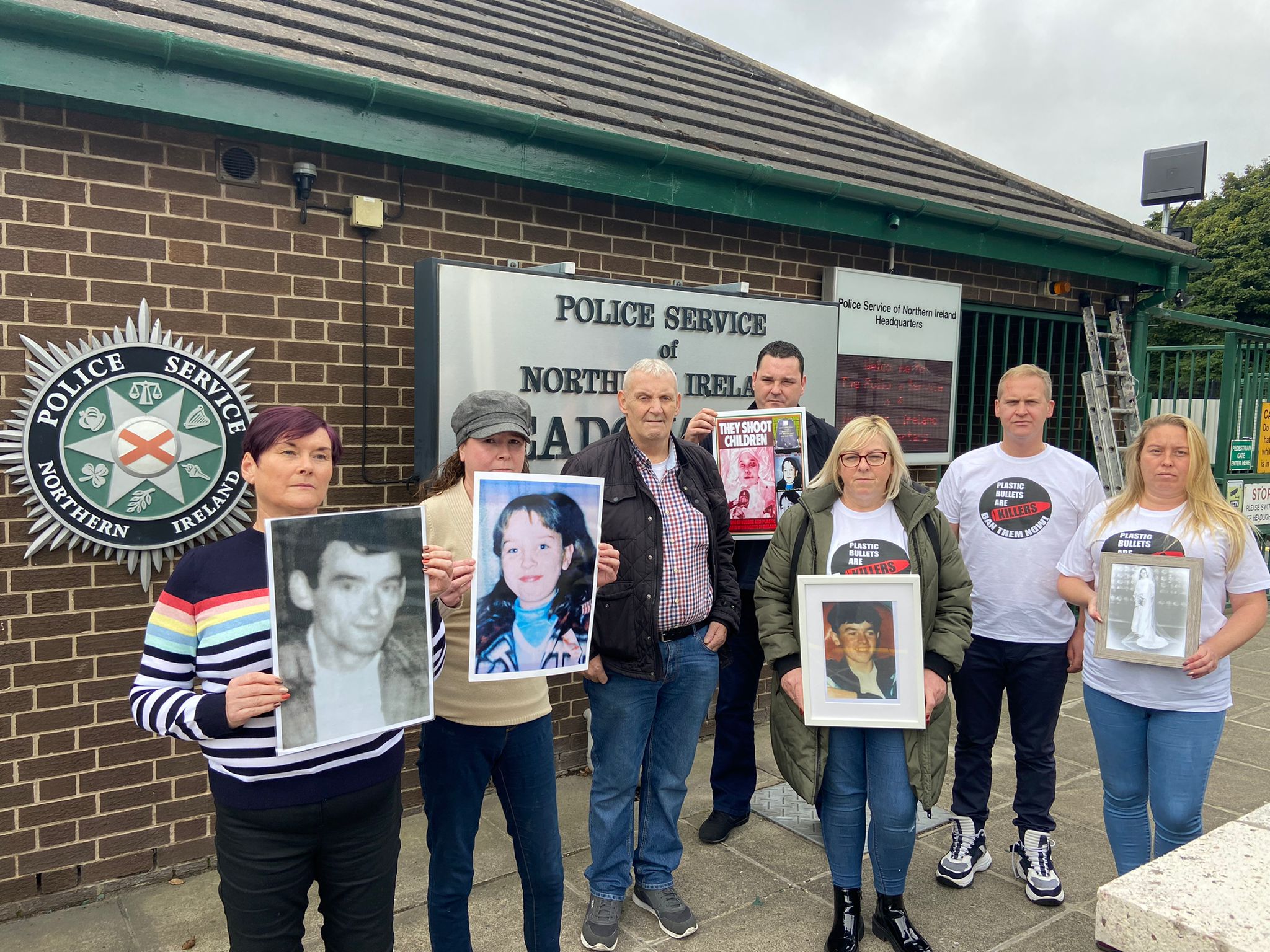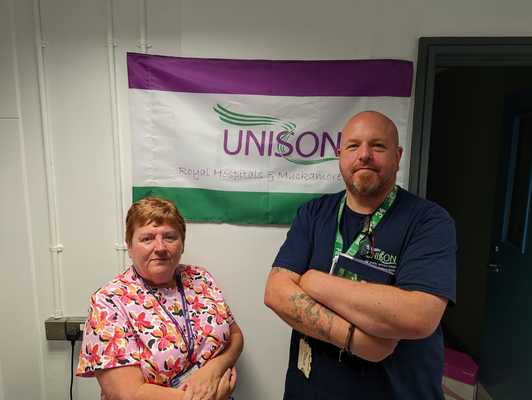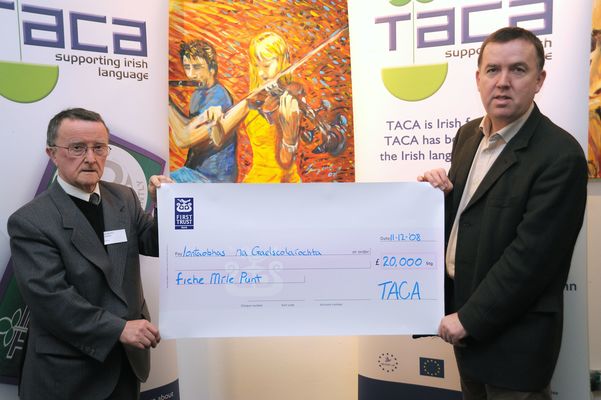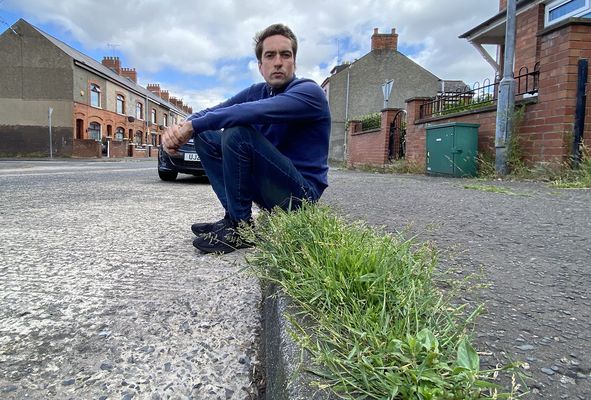FAMILIES bereaved through plastic and rubber bullets have spoken out against the British Government's proposed Troubles amnesty.
The United Campaign Against Plastic Bullets (UCAPB), which composes of relatives of those killed and maimed by rubber and plastic bullets, has expressed revulsion and outrage at proposals to introduce a statute of limitations on Troubles killings and crimes prior to 1998.
Jim and Áine McCabe's mother Norah McCabe was shot and killed by an RUC officer as she walked along Linden Street in the Clonard area on July 8, 1981.
Allegations of RUC Brutality 1976-1977; Rubber and Plastic Bullets Kill and Maim: Violations of Human Rights by RUC and British Army in N. Ireland; Michael McCartan an Innocent Catholic boy Shot Dead by the RUC; also Silent Too Long and Ulster the Facts. pic.twitter.com/BjgfSozOVD
— Seamus O'Rafferty (@ARDMHACHA81) September 16, 2021
Áine said: “I was barely three-months old when she was so cruelly taken from us. I’ve no memories at all. I only have fond and loving stories from family and friends.
"I’m now a mother with teenage children and the enormity of our loss oftentimes hits me. My mammy missed out on so much as did we.
"My daddy campaigned for years for justice and to have plastic bullets banned. He took the case as far as he possibly could. He faced barriers to justice, obfuscation and denial of what the RUC did and then the administrative official cover-up."
Jim McCabe said: "Human rights lawyer Pat Finucane represented our family and despite providing film-footage of the shooting at the original inquest, captured by a Canadian TV crew who just happened to filming a report on the hunger strikes as mammy was shot, we still didn’t get justice.
"The footage, introduced by Pat after the RUC had all given evidence, exposed the RUC lies about rioting crowds, barricades and petrol bombers on the Falls Road and that they never fired a plastic bullet at the spot where mammy was shot.
"Despite perjuring themselves, in addition to the killing, none were ever charged.
"Pat famously said outside court that if justice couldn’t be delivered in this instance given the overwhelming body of irrefutable evidence that it was inconceivable to ever see a case that could deliver justice when concerning the role of the RUC."
Jim branded the British Government's proposals "anti-democratic and anti-rule of law”.
Christine Duffy, sister of 15 year-old Seamus Duffy who was killed by the RUC on August 9,1989 in North Belfast, said her brother was "a beautiful wee boy full of life".
"His death devastated our family and like all the families who had a loved one killed there’s never a day goes by without us thinking of him.
“We never received any justice.
“To be perfectly honest Seamus was singled out and shot because he was wearing a Celtic jersey. Plain and simple. There was no other reason or justification for his killing."
She said cases like Seamus', which is scheduled for a new inquest, had prompted the government "to hide their actions by banning access to justice".
Mark and James Kelly spoke about the British Army shooting of their sister Carol-Ann Kelly (12) in Twinbrook in 1981.
“It was a beautiful summer’s evening around 9.30pm and we were playing football in the large open space carpark between the backs of two rows of houses," Mark recalled.
"Back then not many people had cars and it was our playground on our doorstep.
"A pathway between the rows led to an open and slightly elevated green area to the right that was overlooked by a small row of houses. That row contained our home.
“Carol-Ann was just in front of me on the pathway when an armoured patrol was passing on the main road.
“There was absolutely no trouble or rioting. It was tranquil beforehand.
“Plastic bullets were suddenly fired and we hesitated, stopping and taking shelter in what safety there was in the pathway and back garden fencing that obscured us from the open green area and the road just beyond where the patrol were driving.
“Carol-Ann stepped out -– the shot rang out – and she fell in front of me.
“I knew then the shot was fatal.
“My late mother did all she could, along with my elder sisters, to get justice."
Mark described how a British Army patrol stopped an ambulance at the entrance to Twinbrook, delaying emergency aid.
“At the inquest the other soldiers lied. They said there was a riot. But if there was a riot then why did one soldier simply abandon his rifle and go straight to Carol-Ann?
“We were told later he was disciplined for leaving his rifle – but no one held to account for what happened to our wee sister.
“The peace process has provided space, reflection and opportunity to re-examine all those killings for which there has never been justice and for the very first time those who pulled the triggers and covered up might possibly be asked in an independent way to account for their actions.
“And so began the nonsense – the propaganda – that British soldiers and RUC members are the victims of so-called ‘witch-hunts’ and ‘vexatious’ investigations and prosecutions.
“Leading the charge on these claims is Boris Johnson and in the face of the rule of law being applied he wants an amnesty to ‘protect' British soldiers who killed our loved ones. But it is British police, British prosecutors and British courts examining these matters and they are loyal to and act in the name of the British Crown. This exposes Johnson’s proposals as nonsense."
James Kelly added: “When faced with the prospect of independent scrutiny the British government go on the run and seek an amnesty.
“For decades they lectured everyone about the necessity for adherence to the rule of law and primacy of democracy and yet the first chance families get to even have a glimpse of truth and justice for State killings this is their reaction.
"Calling them hypocrites is too generous.
“Our mother decided to show the world exactly what the British army, and its government, did to our family and our beloved Carol-Ann by permitting her to be photographed in her coffin.
"They say a picture speaks a thousand words – her angelic bruised face – infinitely demanding justice and the banning of plastic bullets.
“This was no easy decision for her as it was also a constant reminder but she never wanted anyone else, least of all a child, to suffer a similar fate.
“We’ll never give up and will always speak her name, show her picture and demand justice and an end to the use of plastic bullets."
Margaret McGuinness, daughter of Peter McGuinness who was shot and killed by the RUC at his home in the Bawnmore area on August 9 1981, added: “My daddy and mammy had come out of the house to challenge a small group of youths who had thrown a petrol bomb in our street and which landed in and around our front garden.
"The youths had long since dispersed and as mammy and daddy were chatting to a neighbour, who had also come out of his home, the RUC drove up in two armoured jeeps, stopped, and fired a plastic bullet virtually at point blank range striking daddy in the chest.
“It was exactly 10 years to the day that my uncle, Joseph Murphy, was killed by the British Army in Ballymurphy.
“We intend two achieve two things – to clear my daddy’s name also, and ban plastic bullets. But now Boris Johnson wants to prevent the clearing of the names of those people his armed forces shot and killed and falsely labelled as ‘rioters’ and ‘gunmen’.
“He wants to maintain the lies and falsehoods that persist to this day as to do otherwise would expose exactly what went on here for decades.
“I’d say this is more about preventing reputational damage to the British government but others say they no longer have a reputation to protect given they’ve been involved in so much wrongdoing and human rights violations here”.
Jim Rowntree's brother Francis Rowntree (11) was killed by a rubber bullet fired by the British army in the Divis Flats area on April 20 1972.
He concluded: “Like many of these shootings those doing the killing always claimed there was rioting but we all know this not to be true.
“The rubber bullet that struck Francis was ‘doctored’. A large battery had been inserted into it prior to firing.
“This was often carried out and especially by the British army who tended to also insert metal objects and coins so as to inflict even worse physical damage on impact – if such a thing is possible given the lethal nature of these weapons.
“My parents passed away without any justice or accountability whatsoever.
“In the aftermath of the killing, and like many of the families, we were targeted for harassment by the British army – house-raids, stop and search, threats.
“It was all part and parcel of trying to intimidate you from speaking out about what they'd done.
“But we never gave up and we were able to petition the Attorney General with the help of Relatives for Justice and our lawyer Pádraig Ó Muirigh and secure a fresh inquest.
“This refuted the claims of rioting and cleared Francis’ name and we await any matters arising against the soldiers responsible. We’re also taking a civil case against the MoD and the British government.
“But now the UK government want to bring a halt to all these processes of truth seeking and accountability.
“It’s totally wrong and smacks of everything to hide.
“Going down this route will impact negatively on wider society and not just the families. It totally sends the wrong messages about law and order, justice and due process.
“It was an absence of these values that contributed most to fuelling the conflict.
“Justice comes with peace – let it be done”.
UCAPB has also written to the justice minister, Naomi Long, the policing board and PSNI Chief Constable, Simon Byrne, seeking meetings about the recent use of plastic bullets and to reiterate the campaign demand that they be banned.








